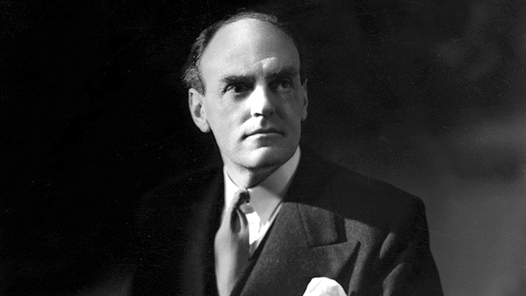 The “news item” in question: http://www.bbc.co.uk/news/uk-29995641
The “news item” in question: http://www.bbc.co.uk/news/uk-29995641
If you are not very far away from the ancient St Tuchaldus Church and cemetery, Rothiemurchus in Invernessshire, you may, Dear Reader be hearing a distant whirring coming from that direction. If so it will be the ashes of the late The Right Honourable, The Lord Reith, KT, GCVO, GBE, CB, TD, PC – the first Director-General of the British Broadcasting Corporation.
John, Lord Reith died in Edinburgh after a fall, at the age of 81 on 16th June 1971 and in accordance with his wishes, his ashes were buried at the ancient, ruined chapel of Rothiemurchus in Invernessshire.
Aware of the power of influence the BBC could wield, Lord Reith adopted a very strict policy of impartiality. This of course is long gone and his organisation is now known as the Brussels Broadcasting Commissariat. From whom it receives generous funding!
Up till late, the BBC had always tried to be as subtle as they could be – which recently has been not subtle at all! Today’s “news item” is a classic of the current genre. Supposedly a news report, it has been penned by Sir Stephen Wall now of the European Institute at University College London. He was British ambassador to Portugal from 1993 to 1995, permanent representative to the European Union from 1995 to 2000 and head of the European Secretariat in the Cabinet Office from 2000 to 2004.
In other words, a dedicated Europhile.
Who better then to write a supposedly “impartial” article about a short history of the UK’s membership of the EEC/EC/EU?
Impartially is clearly out of the window for Sir Stephen Wall and the Brussels Brainwashing Commissariat present as SETTLED FACT that the UK will suffer economically and politically (in terms of its loss of influence) outside the EU.
Of course, were we to get into an economic debate about this issue, it would be a long one. However, we can cut very quickly to the chase insofar as the UK’s political influence is concerned:
The Treaty of Lisbon has introduced passerelle clauses in order to be able to apply the ordinary legislative procedure to areas for which the Treaties had laid down a special legislative procedure.
Furthermore, these clauses also allow voting by qualified majority to be applied to acts that are to be adopted unanimously.
There are two types of passerelle clause:
– the general passerelle clause applying to all European policies; activation of this clause must be authorised by a Decision of the European Council acting unanimously (see file “Amendment of Treaties”);
– specific passerelle clauses relating to certain European policies.
Specific passerelle clauses have some procedural particularities with respect to the general passerelle clause. As an example, national Parliaments do not generally have a right to object, which is granted to them by the general clause. In other cases, the application of certain specific clauses may be authorised by a Decision of the Council, and not of the European Council as is the case for the general clause. The implementing rules for the specific clauses therefore differ from case to case and are described in the Articles of the Treaties providing for their application.
There are six specific passerelle clauses to be applied to:
– the multiannual financial framework (Article 312 of the Treaty on the Functioning of the EU);
– the Common Foreign and Security Policy (Article 31 of the Treaty on European Union);
– judicial cooperation concerning family law (Article 81 of the Treaty on the Functioning of the EU). This specific clause is the only clause regarding which national Parliaments retain a right to object;
reinforced cooperation in areas governed by unanimity or by a special legislative procedure (Article 333 of the Treaty on the Functioning of the EU);
social affairs (Article 153 of the Treaty on the Functioning of the EU);
environmental matters (Article 192 of the Treaty on the Functioning of the EU).
British Gazette synopsis in-re UK Foreign Policy: The UK’s Parliament DOES NOT HAVE a right to object to the Common Foreign and Security Policy.
This of course is High Treason!!!!!!!
So the question we ask of the BBC and Sir Stephen is this:
What part of the following do you NOT understand?????
The Member States shall support the Union’s external and security policy actively and unreservedly in a spirit of loyalty and mutual solidarity. They shall refrain from any action which is contrary to the interests of the Union or likely to impair its effectiveness as a cohesive force in international relations. The Council shall ensure that these principles are complied with.
This is why Cameron said what he said to Vladimir Putin at the G20 conference. He was following instructions – so much for political influence then!
Truly, Lord Reid would be utterly appalled.
Speaking the Truth unto the Nation
